Kidney Stones: Types, Causes, Symptoms, Treatment & Cost
Kidney stones are small crystals that form in the kidneys. These stones can be made of calcium, uric acid, cystine or struvite. Stones may be as small as a grain of sand or as large as a golf ball. Kidney stones are a common health problem that causes pain and pressure in your lower back. You might also have nausea and vomiting. Sometimes people with kidney stones pass them without any symptoms at all.
According to the studies, it is evident that one on ten people get the kidney stone in their lifetime and the count is increasing with time. Kidney stones are far less common in children when compared to adults.
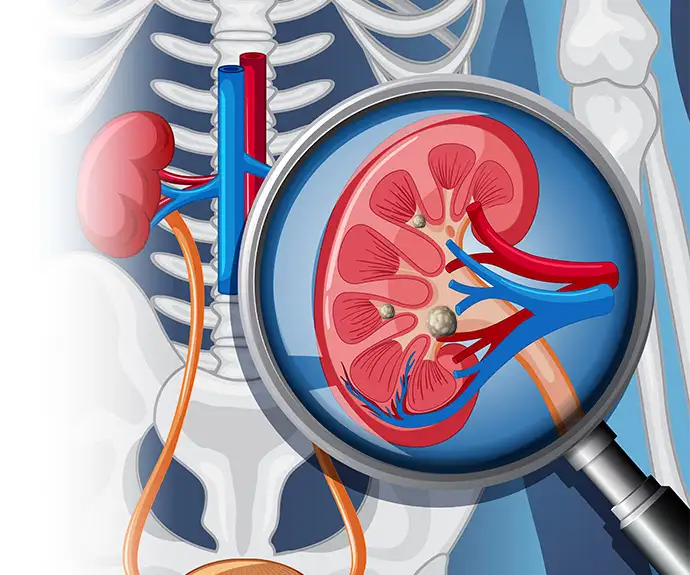
WHAT IS KIDNEY STONE
Kidney stone is a solid masses of irregular shapes and different sizes. They can be very small like a grain of sand or big similar to the size of a golf ball. It depends on the size of the kidney stone that makes a person realize if one has the stone or not. A very small kidney stone may also cause severe pain and health complications if it tries to exit via the urinary tract.
A larger kidney stone usually gets trapped in the ureter (urinary tube to drain out the urine from the kidneys to the bladder). This situation may cause bleeding and the emergency requirement for surgery.
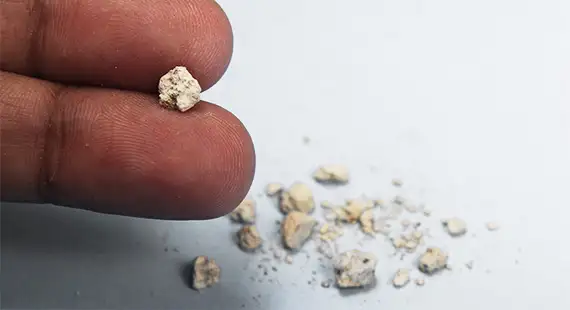
TYPES OF KIDNEY STONES
Calcium Stones
Most common type of kidney stones are made of calcium. They are formed as result of excessive amounts of calcium in urine or hypercalciuria.
1
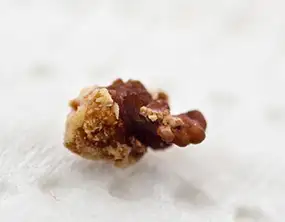
Uric Acid Stones
Type of kidney stones that are harder, formed from uric acid in the urine.
2
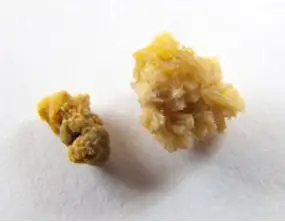
Struvite stones
Type of kidney stone formed of various chemicals including calcium phosphate and calcium oxalate. They grow quickly and form very large stones.
3
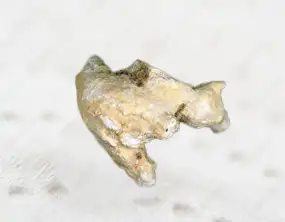
Cystine stones
Type of kidney stones formed as a result of cystine leakage into the urine.
4
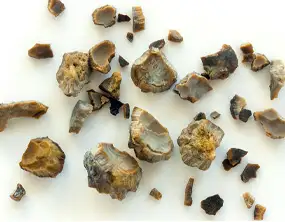
CAUSES
- Drinking less water
- Too much exercises
- Obesity
- Having food with too much salt/sugar
HOW IS IT FORMED?
Kidney stones are formed when there is an accumulation of substances that causes crystal formation like uric acid, oxalates, and calcium. Kidney stones are small hard depositions mainly developed in the interior side of the kidney.
The mechanism of kidney stone formation in our body is actually the nucleation of stone constituents, their aggregation, and growth. The crystal formation occurs in the renal fluid that gets supersaturated with the salts leading to the formation of crystals.
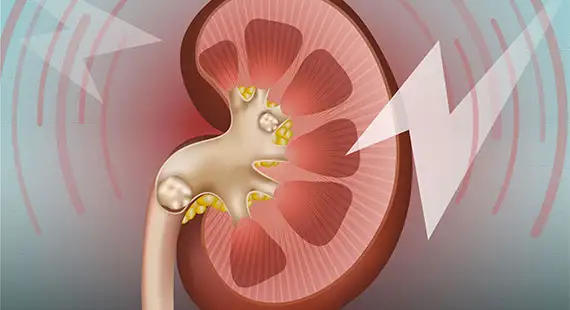
SYMPTOMS
- Pain and Pressure in Lower Back
- Gastrointestinal issues
- Fever and Chills
- Blood in urine
- Bad smelling urine
- Cloudy texture of urine
- Nausea & vomiting
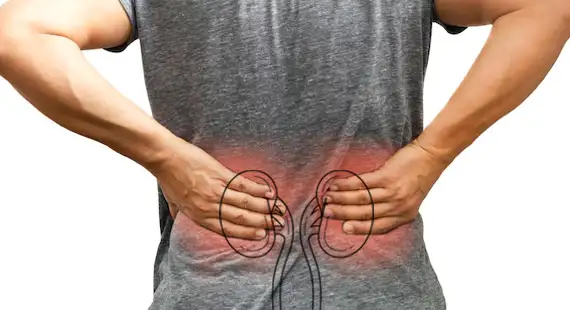
DIAGNOSIS
Before a kidney stone surgery, the patient might be asked to undergo specific diagnostic and customary scanning or tests.
Blood test
This is a basic requirement before final surgery. It highlights the amount of uric acid or calcium in the blood. A blood test is an initial step for the doctor to know the exact condition of your kidney and the overall health of your body.
Urine test
This test might be performed for two consecutive days. It will help determine the amount of urine forming, less or more.
Images scanning
A scanning shows a definite inside view of the stone's size, shape, and type formed. For this, a CT scan or ultrasound is a favorable option as general X-rays are not much reliable.
Analysis of stools passed
This test might also be included in your diagnosis by the doctor to sketch a proper plan to prevent more stones from forming and study the already formed ones.
DO's
DONT's
TREATMENTS
NON-SURGICAL TREATMENTS
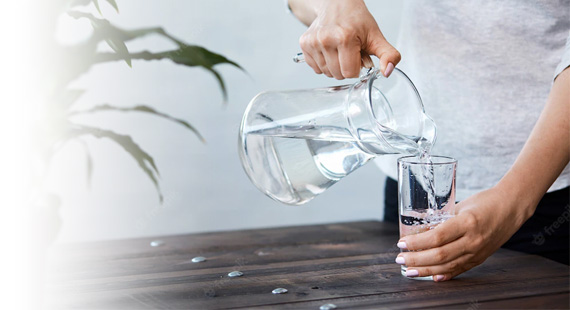
Increase water intake
You are advised to drink at least 8 glasses of water to have a healthy regulation of urine, cleanse your body and save you from kidney stones.
Painkillers and medicines
Sometimes, mild pain can be cured through painkillers available in any pharmacy.
Medical support
At times, when the first two options are not releasing stone, consult a doctor. Doctors will guide you accurately to take proper medication.
SURGICAL TREATMENTS
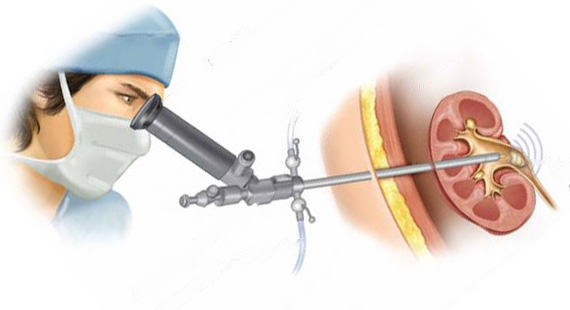
An expert surgeon or a urologist use cystoscopy and ureteroscopy to have a look inside and navigate the stones and capture images respectively. Once the doctors navigate the stones, depending on the size, he will either remove or crush the stones into smaller pieces.
Common surgical techniques to remove kidney stones are:
- Open surgery
- Laparoscopic surgery
- Ureteroscopy
- Lithotripsy
- Percutaneous nephrolithotomy
RISKS AND COMPLICATIONS
Kidney stones are found to be more common in males than females. They’re also more common among people over 40 years of age and those with a family history of kidney stones or gout. Some of the common risk factors for kidney stones include:
- Family history
- Dietary factors
- Weight gain
- Abdominal diseases
- Specified medication or altered dosage
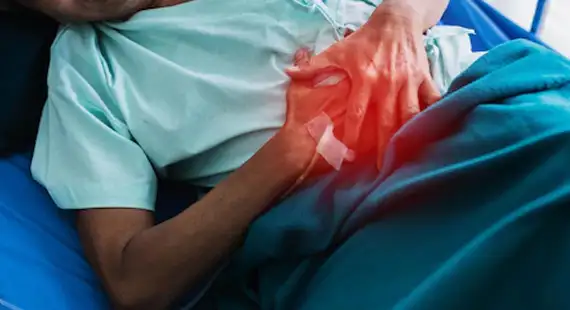
IF LEFT UNTREATED
Most common kidney stone complications that arises if the kidney stones are left untreated are infections, intense pain, ureter failure or ureter blockage. The blockage often happens due to pieces of stones that block the way to easily pass the waste.
COST
The average cost of surgery for kidney stone removal is ₹65,000. Minimum and maximum costs for the surgical treatment of kidney stones are variable depending on the type of surgery, hospital facilitation, disease severity, and the city in which the surgery is done.
Financial Options
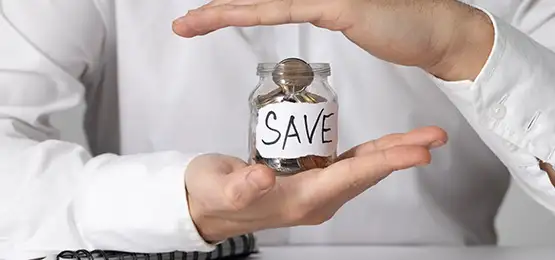
INSURANCE COVERAGE
Almost all the health insurance providers ensure the coverage of surgery to remove kidney stones. There may by variations in the provisions or policies of the health insurance providers. Most of the time, the insurer will cover a particular amount for surgical treatment. However, the amount to be covered under insurance depends on the type of policy.
It is important to know that medical treatment for kidney stones will not be covered under the insurance policy. It will only cover the cost or expenses of the surgical treatment, but to claim this, you will have to be hospitalized for 24 hours.
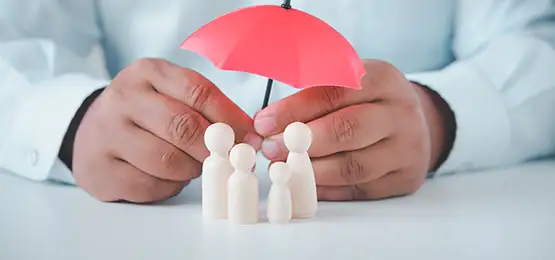
Know more about Kidney stones
Kidney stones are hard, crystallized mineral deposits that form inside your kidneys. Major types of Kidney stones are Calcium Stones and Uric Acid Stones.
What causes kidney stones often consists of any of the factors such as drinking less or excessive amounts of water, unwanted weight gain, exercising less or extremely, excessive intake of sugar or salt in regular meals, and family history too plays a significant role in its occurrence.
It is good news for everyone that the medical team and researchers have been able to prepare a list of significant signs and symptoms that can be read, and understood.
Noteworthy Kidney Stone's symptoms are as follows.
- Feeling mild or severe pain, especially in your back or at any side of your body.
- If you feel pain, pressure, or burning sensations while urinating
- Feeling bloated or having abdominal pain and vomiting, having chills or fever along with some pain.
- Rushing for urinating frequently.
- Sensing bad smell while passing urine
If you are reluctant to get rid of kidney stones? Read out the article to gather information about quick tips and surgical approaches for kidney stones or consult the best urologist and kidney experts. You may choose Glamyo Health For Advanced Laser Kidney Stone Treatment. No Cuts & No Stitches; Instant Relief of the excruciating Pain; Fast Recovery in 48 Hours; All Insurance Accepted.
Advanced Kidney stone treatment in Delhi at the most affordable prices, advanced technology, and skilled surgeons at Glamyo Health Care. Glamyo Health ensures that the surgery is minimally invasive, scarless, and risk-free. You can get the patient reviews who underwent successful and smooth surgery at Glamyo Health.
 New Delhi
New Delhi  Bangalore
Bangalore  Mumbai
Mumbai  Hyderabad
Hyderabad  Pune
Pune  Chennai
Chennai 
